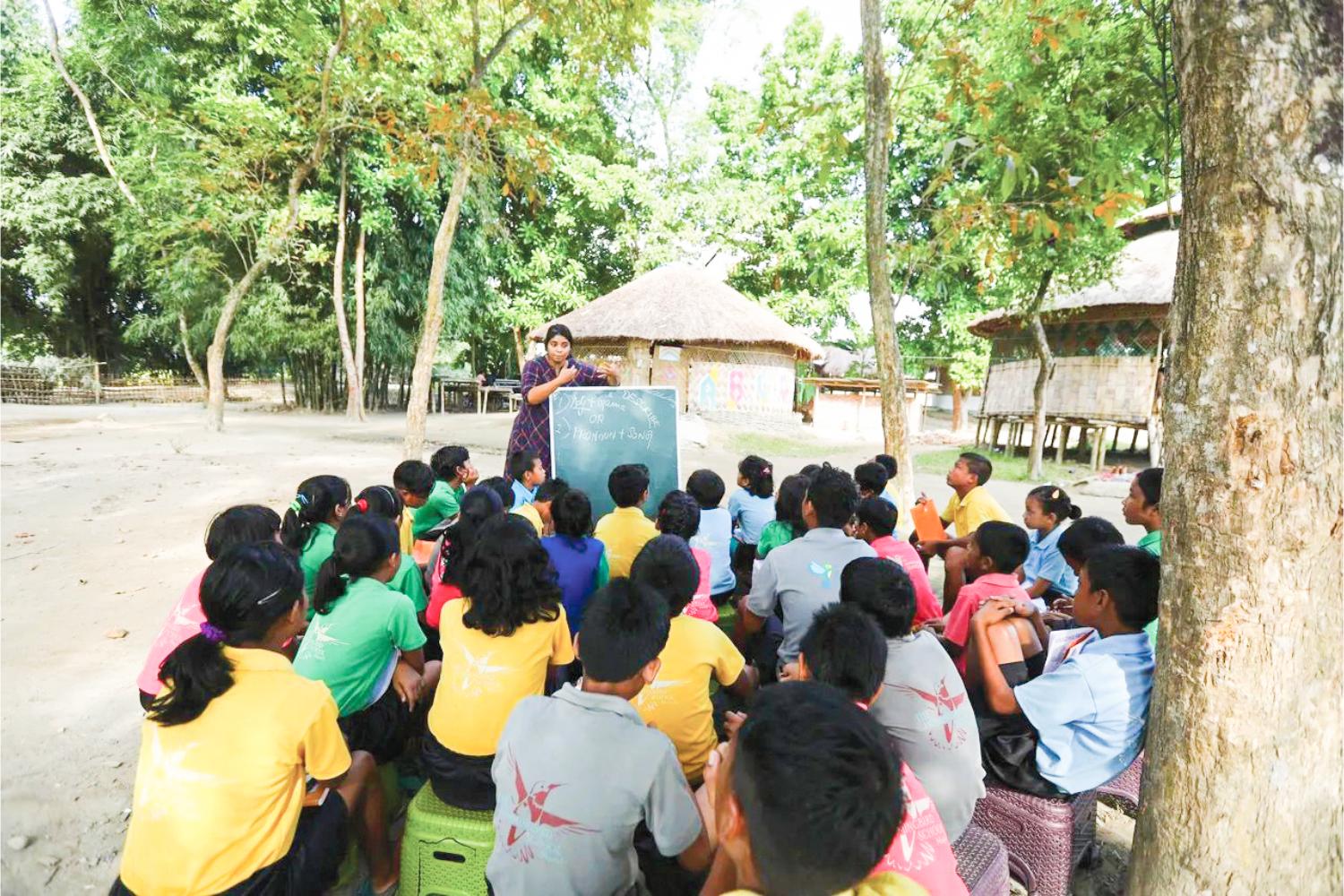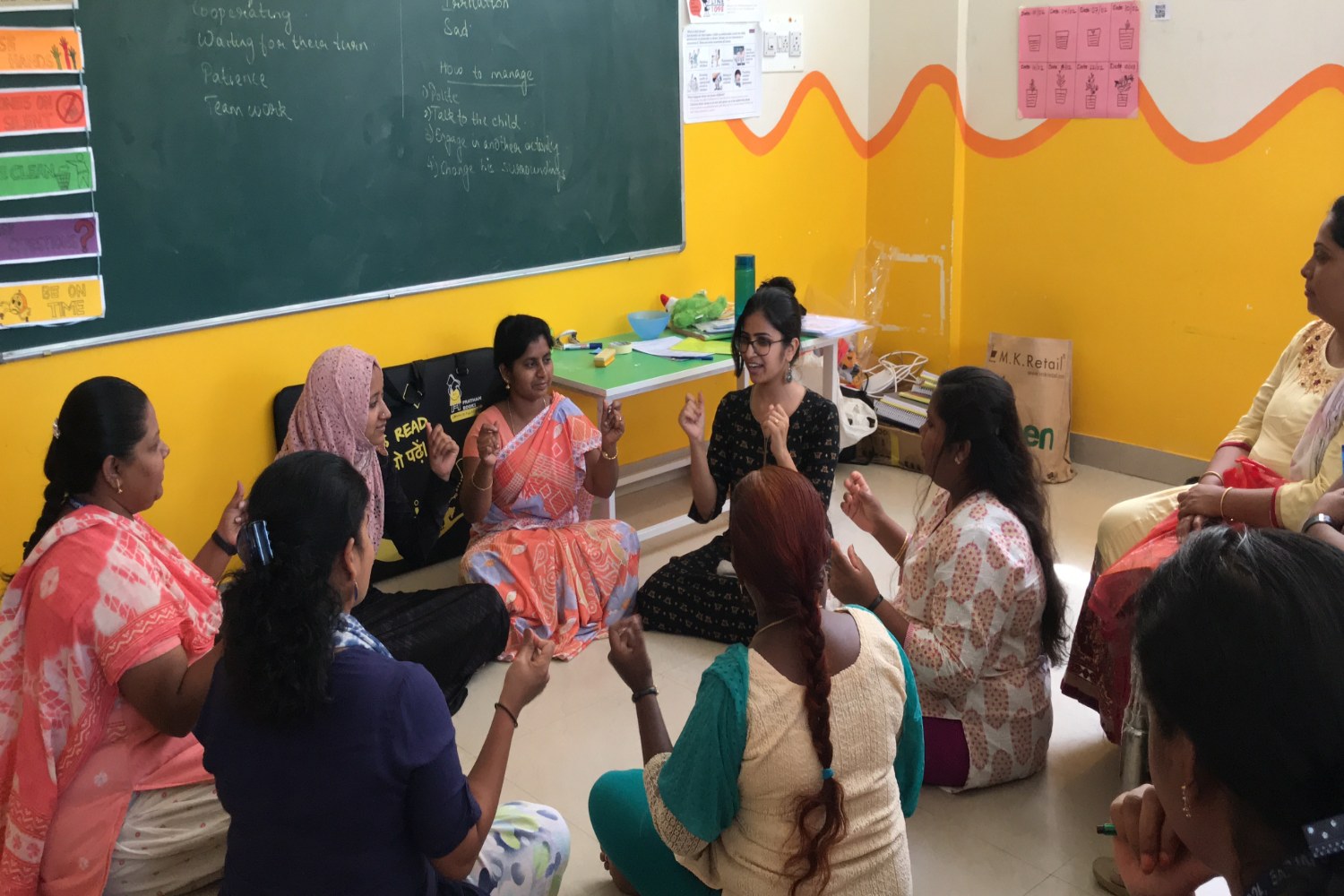Our Experiences Shape Our Ability to Seek Help
In his piece titled “Our experiences shape our ability to seek help,” Rishabh Lalani provides a very useful mental map for thinking through various aspects of fundraising, and shares a bouquet of online resources for getting started on seeking help for non-profit organizations.

I often facilitate workshops for adults, who are looking to build their capacities to raise funds. In these, I ask them to close their eyes and get into a time machine. The imaginary time machine is supposed to transport them back to their childhood. In this shared space of vulnerability, we discuss how they asked for their choicest things, ranging from a sweet to a day out in the park to getting their favorite puppy to buying a cycle.
What Did We Ask?

When I ask people how they managed to get what they wanted as children, it ranges from raising a tantrum to designing a long winding strategy that involved stakeholders from grandparents to parents to close relatives. Sometimes it involved making a strong case for having something against a deliverable that the parents wanted. One could extract all potential skills and strategies that people used as children as illustrated in page 12.
A cursory look at this illustration tells us that we possibly had all the skills needed to raise funds as children. Sometimes as young as 8-10 years old. This is phenomenal. But something changed along the way. So I ask people to step out of the time machine. And think of life in the present. What feelings do they experience when they think of asking?
Somewhere our conditioning took over. Our social circumstances, our deepest fears and what was considered unacceptable in society, all changed what was our default state. The journey really is to rediscover our inner child and inner joy in seeking the help of others.
A Mental Model for Fundraising
The question, therefore, is what are we to do when confronted with the mammoth task of raising money. Fundraising is meticulous work, which means you have to do small things on a daily basis for everything to count. I have tried to enumerate what those small actions could be in some order. This is not prescriptive, but to help you get started in your journey. For each organization, iterations will be different, but the fundamentals will remain the same.
- Be your own inspiration. The only inspiration that counts is your own, the one that comes from within. For you, inspiration could be a personal connection with a cause or that you’ve been making contributions to a particular organization. And if you haven’t found inspiration, go ahead and make your first contribution somewhere. See what feels the most relatable to you.
- Go public. Don’t feel shy about seeking support for causes and asking for contributions. Let others know of successes and failures, share what you’ve learnt and be open to receiving all kinds of responses. Someone is always watching, and you don’t know how the causes could benefit from the attention. And yes, always end with an ASK.
- Reach out to everyone. A good fundraising engine survives on both warm and cold contacts. This means we must tell everyone about what we are doing and seek their time. While communicating on public platforms is important, reaching out to those on your emailing lists, WhatsApp contacts, phone book and other mediums are equally important.
What Skills/Tools Did We Use?

- The narrative is more critical than the story. A story is a sequence of events, but the sequencing defines the narrative. Narrative is everything. In a world where nearly a third of our citizens are hungry and stranded, you’ve got to establish need, credibility and action – sometimes in just a matter of seconds.
- Matchmaking is your superpower. Hundreds of great proposals get rejected because either they don’t reach the right person at the right time or because there is a mismatch between what the donor can give and what you’re asking for. Not everyone can give everything, but everyone can give something. Take some time to figure out what that is and make an ask (again if needed).
- Persistence and perseverance go a long way. Don’t take NO for an answer. Ask multiple times, ask multiple things, ask multiple people in the same organization. Don’t be afraid of being a little irritating and also give the other person a way to gracefully say no to you. None of this is personal, everyone understands.
- Find connectors-collaborators-believers. While reaching out to those you know and you don’t know, keep a keen eye out for those who will stand by you, will believe you and will work with you. Solidarity is a crucial weapon; so hold on to any kind of support you can get.
- Build trust. Trust is a tentative thing during these times. The speed at which requests come and the sheer volume of it can be exhausting for everyone. Figuring out ways in which one can be transparent, to the point and supportive of both funders and nonprofits is the job of the person liaising. Unitize the cost, give context, report from time to time, and make it really easy to understand what you are doing.
Feelings Associated with Asking

- Communicate, communicate, communicate. Closing every open loop and opening every possible door keeps campaigns alive. Every contribution has several checkpoints. Telling the donor why you need (narrative), what and how much you need (product), getting the donor to contribute (channel/platform), informing them on what happened with the contribution (servicing), continuously updating on new developments (engagement), and finally making them part of your story (believer). Keep communicating at all stages.
- Take care of yourself. On many days, I have slept feeling anxious, worried if a donation will come through or if I’ll end up burning bridges with some donors, friends and supporters. Fundraising is a high octane and exhausting job. Rejection is a large part of the game, and you are most likely to feel dejected, sad, alone, and sometimes even broken. Forgiving oneself is key. Seek the solace of friends and family. But, get back up again. Acknowledge your efforts and move forward knowing that despite how large the problem is, you still stood up against it.
Last year during the first wave of the pandemic, I started writing to everyone I could think of. From India’s richest individuals to some well-known philanthropies and philanthropists. It was a leap of faith that humanity will come together in a time of great distress. Not everyone responded.
Some well-meaning people did, but one individual stood out with his generosity. He responded first with a small set of donations. And then wrote back asking for more names and places to give. And this continued well into this year. This single individual and his family have contributed close to INR 4 crores to 51 organizations spanning the length and breadth of India, supporting the most marginalized when they needed it the most. One may ask what is the relevance of this anecdote. Not everyone who we approach needs to support us. Find, nurture and nourish those few who will believe in your work. It’s all you need to change the world.
Some resources on fundraising
- An excellent set of training resources is available at https://www. changethegameacademy.Org/
- If you want to understand your asking style, you can look at https://askingmatters.Com/
- Some excellent case studies on fundraising are available at https://sofii.org/
- Another excellent resource for fundraising training is available at https://acumenacademy.Org/course/nonprofitfundraising-essentials
- A game on understanding trust (30-40 mins) – https://ncase.Me/trust/



No approved comments yet. Be the first to comment!